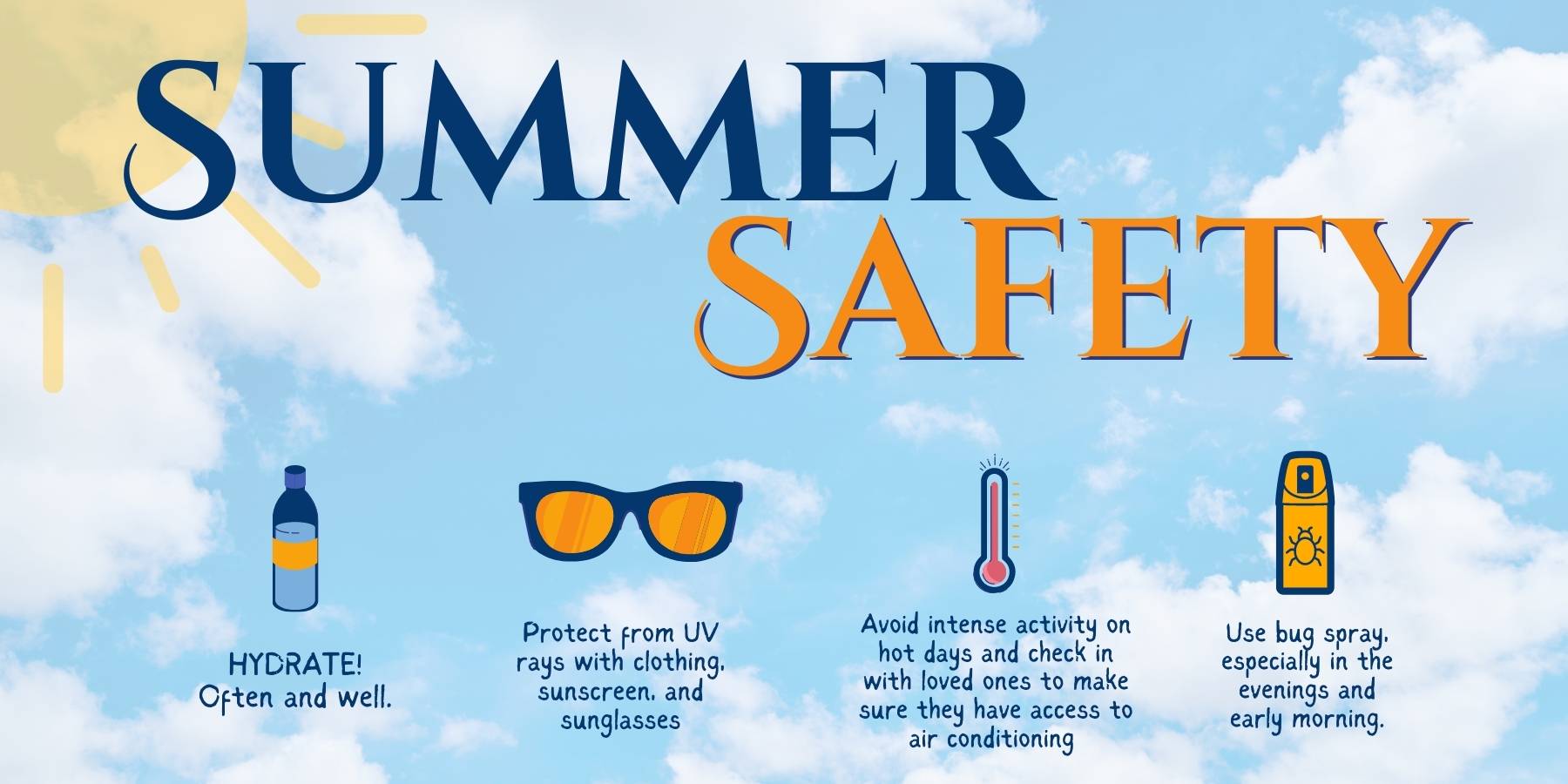

Water Safety | Harmful Algal Blooms | Heat Safety | Skin Cancer | Vaccines
The American Red Cross warns that 69 percent of young children who drown were not expected to be in or near water. Reduce the risks by:
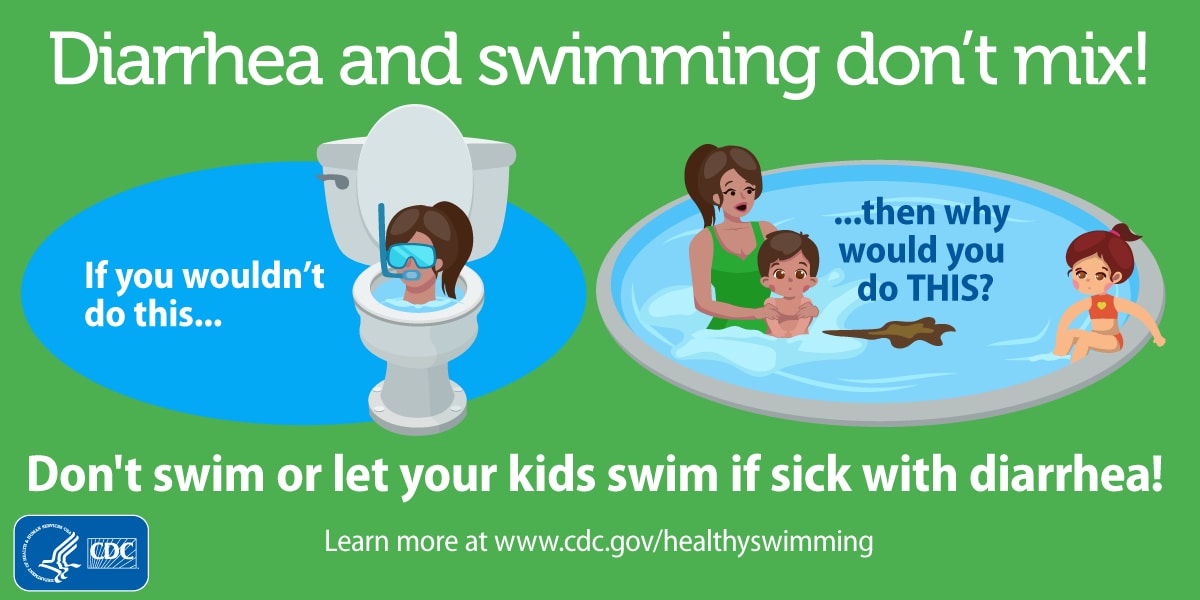
Environmental Health Specialists provide annual inspections in public pools, and follow up inspections if a member of the public reports that pool for health code violations. The Public Health District does not inspect private swimming pools (including hotels and motels) unless there is a public health concern.
Staying healthy in the water: chlorine and other disinfectants are a great way
to kill germs in swimming pools. However, they can only do so much. Please keep your family at home for two weeks after any diarrhea or gastrointestinal bugs to prevent spreading the disease to other swimmers.
Learn more here.

Algae are tiny organisms that are found in water. Most types of algae are beneficial; they produce oxygen and food
for animals that live in water. However, when conditions are just right (like warmer temperatures and more nutrients
in the water) algae can produce algal blooms. If the algal bloom contains cyanobacteria the water can become toxic
to humans, pets, fish, birds, and other animals.
The Department of Environmental Quality tests for cyanobacteria when a member of the public notices a problem. If the
tests positive for toxins, South Central Public Health District helps the DEQ inform the public South Central Public
Health District does not do any of the testing for local lakes or reservoirs.
Check here for a list of all harmful algal blooms in Idaho.
Learn more about algal blooms and how to identify harmful blooms here .
Summer temperatures are important for swimsuit season and playing well after dark. But as our long days warm up it can become easy to overheat in the hot sun.The following tips, from the CDC, will help you make the most of the summer heat without letting it overwhelm you or your loved ones.


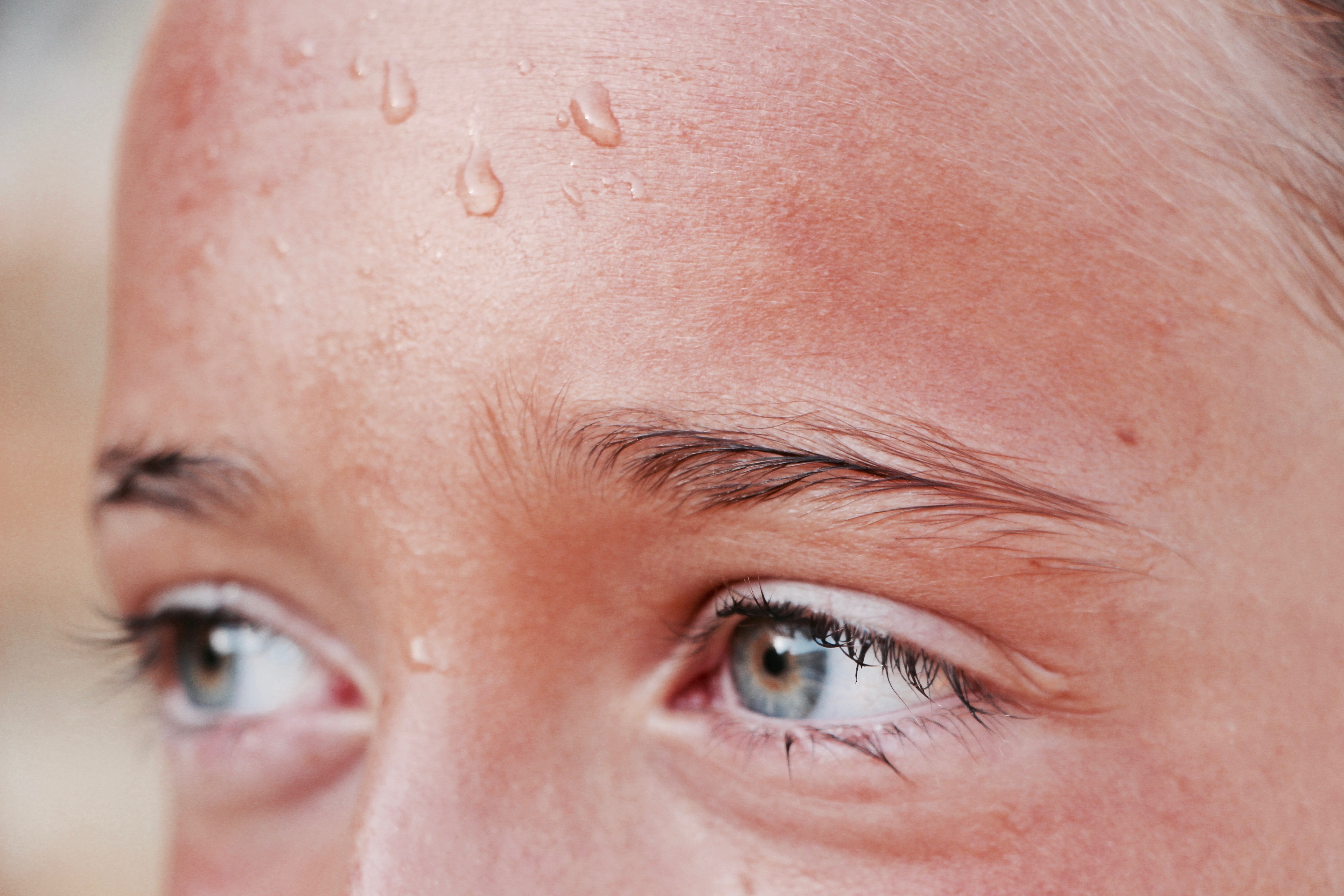
Nearly 5 million people are treated for skin cancer each year in the United States and Idaho is number one in the nation for melanoma deaths. This cancer is entirely preventable and can be treated if you catch it early enough with a simple skin cancer screening.
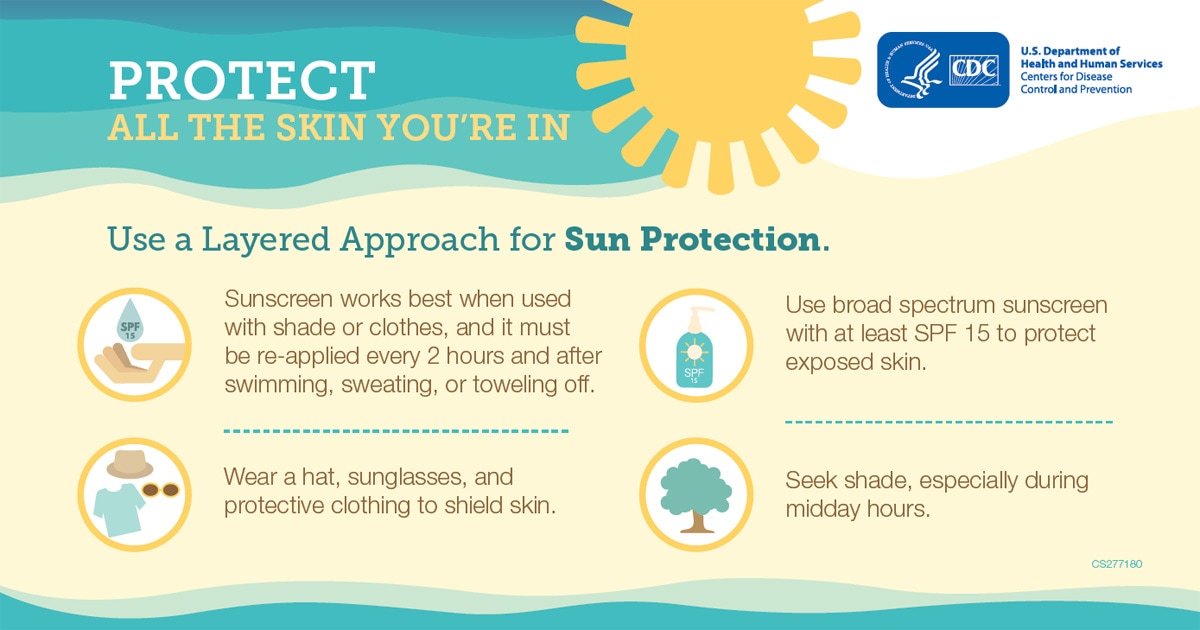
Use sunscreen with an SPF of 30 or higher on anyone over 6 months old. Reapply every two hours, even on cloudy days, and more frequently when you swim, sweat, or towel off. *Do not use sunscreen on babies under 6 months old!*
Wear protective clothing: a loose-fitting and long-sleeve shirt, a wide-brimmed hat, and sunglasses.
Limit time outside between 10 a.m. - 4 p.m. when the sun's rays are the strongest.
Seek or create shade, especially if you have noticed that your shadow is shorter than you.
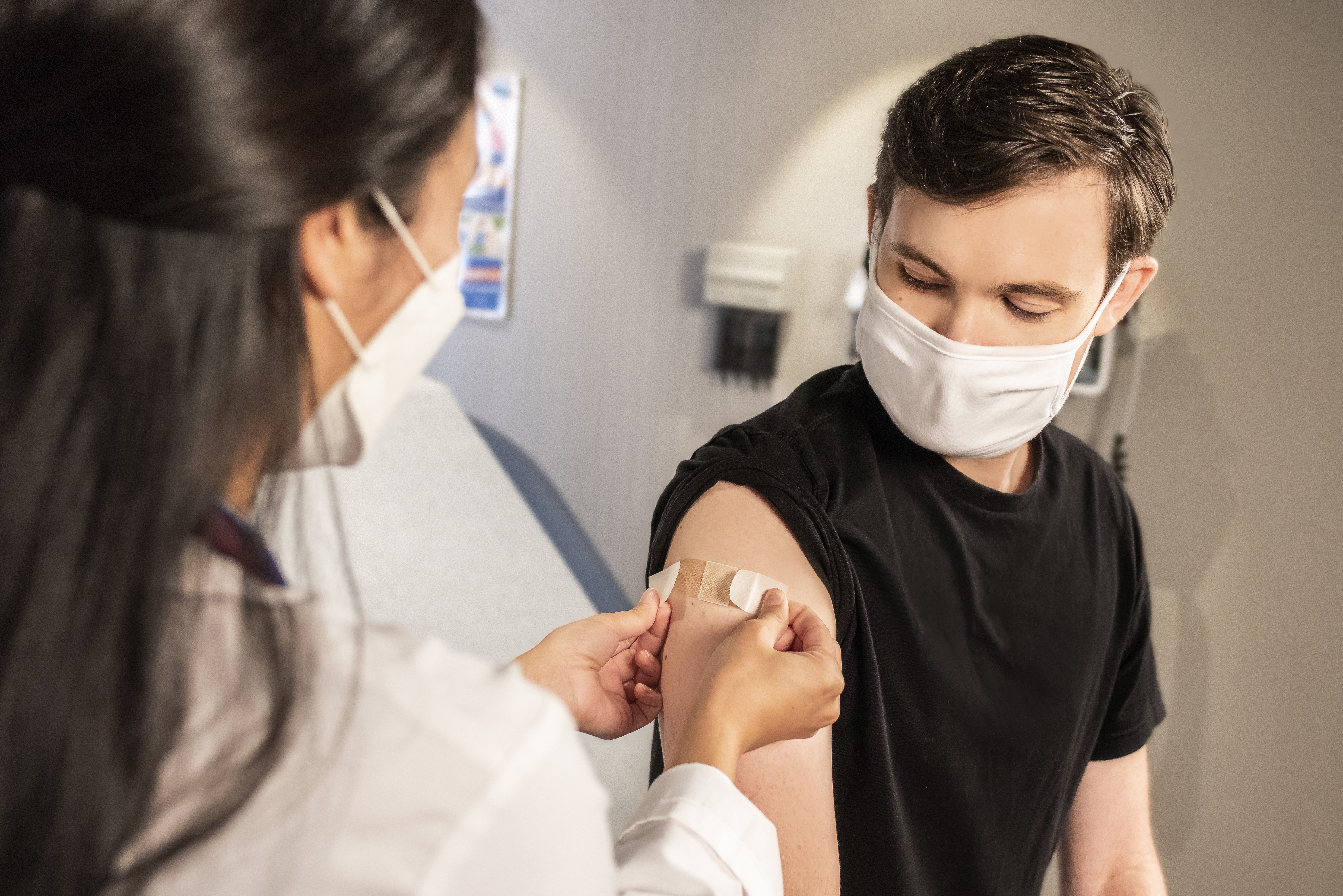
Traveling to a different community can expose you and your family to new diseases. This is especially true if you are traveling to another country. Make sure your basic immunizations are up to date and check to see if you need any special vaccines for diseases in the area you are visiting. Find a list of vaccines by age here and a list of recommended travel vaccines here.
Even if you are not planning to travel, the Food and Drug Administration (FDA) and the Centers for Disease Control and Prevention (CDC) have authorized and recommended COVID-19 vaccines for everyone 6 months and older, and booster doses for most age groups. These additional doses help give people an extra boost in the fight against COVID-19. Booster doses are especially important for people who are frequently exposed to the disease in their job, or who may be at higher risk because of age, illness, or medication.
Find a provider offering COVID-19 vaccines here. Not all vaccine providers offer pediatric (children) vaccine. Check while making your appointment, or schedule an appointment with SCPHD for children's vaccines.